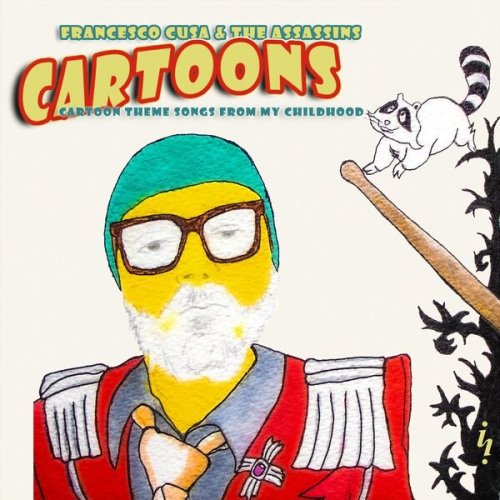Christoph Eschenbach - The Early Recordings (6CD) (2010)
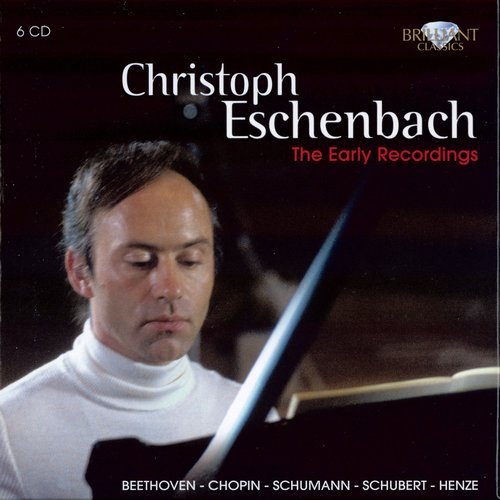
Artist: Christoph Eschenbach
Title: The Early Recordings
Year Of Release: 2010
Label: Brilliant Classics
Genre: Classical
Quality: FLAC (image+.cue,log,scans)
Total Time: 05:28:19
Total Size: 1,24 Gb
WebSite: Album Preview
Tracklist: Title: The Early Recordings
Year Of Release: 2010
Label: Brilliant Classics
Genre: Classical
Quality: FLAC (image+.cue,log,scans)
Total Time: 05:28:19
Total Size: 1,24 Gb
WebSite: Album Preview
CD 1:
Ludwig van Beethoven
[1]-[3] Piano Concerto No.3 in C minor Op.37
Christoph Eschenbach piano
London Symphony Orchestra
Hans Werner Henze
Recording: 17/19 December 1971
[4]-[6] Piano Concerto No.5 in E flat Op.73 "Emperor Concerto"
Christoph Eschenbach piano
Boston Symphony Orchestra
Seiji Ozawa
Recording: 10 October 1973
CD 2:
Ludwig van Beethoven
[1]-[4] Piano Sonata No.29 in B flat Op.106 "Grosse Sonate für das Hammerklavier"
Recording: 3/6 June 1970
CD 3:
Frédéric Chopin
[1]-[24] Préludes Op.28
[25] Prélude in C sharp minor Op.45
[26] Sostenuto, Prélude No.26 in A flat
Recording: 26/28 October 1971
Robert Schumann
[27]-[39] Kinderszenen Op.15
Recording: 3/5 May 1966
CD 4:
Franz Schubert
[1]-[4] Piano Sonata in A, D959
Recording: April 1973
CD 5:
Franz Schubert
[1]-[4] Piano Sonata in B flat, D960
Recording: 17/19 April 1974
CD 6:
Hans Werner Henze
[1]-[6] Piano Concerto No.2 (1967)
Christoph Eschenbach piano
London Symphony Orchestra
Hans Werner Henze
Recording: 3 & 4 April 1970
Performers:
Christoph Eschenbach, piano
This reissue brings together just about all of Christoph Eschenbach’s solo piano recordings for Deutsche Grammophon, with the notable exception of his Mozart sonata cycle and Beethoven First piano concerto with Herbert von Karajan.
Rehearing the 1970 Beethoven “Hammerklavier” sonata, it’s easier for me to accept Eschenbach’s unusually protracted, Romantically inflected Adagio sostenuto on account of the additional tonal heft and color that digital mastering brings out, although the Allegro’s indulgent ritards and textual changes (the added octaves at the recapitulation’s start) still bother me. The pianist proves a shade more incisive and energetic throughout the knotty fugal finale than in his EMI remake.
Similarly, digitizing reveals Eschenbach’s tone emerging to more nuanced, less metallic effect in Beethoven’s Third concerto. I still don’t care for the fussy phrasings and arch dynamic tapering that Hans Werner Henze elicits from the London Symphony musicians, but the Largo’s linear focus and Finale’s rhythmic punch are more stylistically apt. By contrast, Eschenbach is the self-conscious and overly studied culprit in the “Emperor” concerto, while Seiji Ozawa and the Boston Symphony provide lithe, graceful, and pointed orchestral support.
The Schubert sonatas fare best with Eschenbach’s eloquently phrased slow movements and convince least in the small-scaled finales. Chopin’s Op. 28 Préludes similarly hit and miss in Eschenbach’s hands. Nos. 5, 9, 10, 14, 18, and 20 abound with freshly minted voicings and accents that illuminate and intensify character. By contrast, No. 8’s arpeggiated textures are overpedalled and sloppily articulated, No. 12’s two-note phrases are sometimes clear and sometimes muddy, while Nos. 2, 4, 7, 17, and 19 swoon and lurch without going anywhere. But the spacious, flexible profile Eschenbach gives to the C-sharp minor Prélude Op. 45 thoroughly satisfies. Schumann’s Kinderszenen also blur the lines between mannered and musicianly.
However, Eschenbach’s greatest tour-de-force of pure piano virtuosity on disc remains his superb premiere recording of Henze’s 50-minute Piano Concerto No. 2, with the composer conducting the London Philharmonic. Although the work is scored for large orchestra, a chamber-music sensibility dominates the work’s lyrical sections in terms of its instrumentation and continuous integration of the pianist within smaller, concertante-like groupings. The three grim, angry Scherzos feature petulant brass outbursts and quick, dense orchestral tuttis, swirling high-register woodwind and string writing, and percussive gymnastics. Much of the solo piano writing is busily contrapuntal, packed with rapid, leaping chords and occasional sustained sonorities that Messiaen might recognize as his own.
Both the performance and the engineering achieve piano/orchestra interplay that is more fluently dovetailed and better balanced than in the more brilliantly engineered CPO recording with Rolf Plagge and the Nordwestdeutsche Philharmonic under Gerhard Markson. Ates Orga’s booklet notes place this set’s contents within the context of Eschenbach’s past and present career, and include extensive quotes from reviews that appeared (both positive and negative) at the time of the recordings’ original release.
Rehearing the 1970 Beethoven “Hammerklavier” sonata, it’s easier for me to accept Eschenbach’s unusually protracted, Romantically inflected Adagio sostenuto on account of the additional tonal heft and color that digital mastering brings out, although the Allegro’s indulgent ritards and textual changes (the added octaves at the recapitulation’s start) still bother me. The pianist proves a shade more incisive and energetic throughout the knotty fugal finale than in his EMI remake.
Similarly, digitizing reveals Eschenbach’s tone emerging to more nuanced, less metallic effect in Beethoven’s Third concerto. I still don’t care for the fussy phrasings and arch dynamic tapering that Hans Werner Henze elicits from the London Symphony musicians, but the Largo’s linear focus and Finale’s rhythmic punch are more stylistically apt. By contrast, Eschenbach is the self-conscious and overly studied culprit in the “Emperor” concerto, while Seiji Ozawa and the Boston Symphony provide lithe, graceful, and pointed orchestral support.
The Schubert sonatas fare best with Eschenbach’s eloquently phrased slow movements and convince least in the small-scaled finales. Chopin’s Op. 28 Préludes similarly hit and miss in Eschenbach’s hands. Nos. 5, 9, 10, 14, 18, and 20 abound with freshly minted voicings and accents that illuminate and intensify character. By contrast, No. 8’s arpeggiated textures are overpedalled and sloppily articulated, No. 12’s two-note phrases are sometimes clear and sometimes muddy, while Nos. 2, 4, 7, 17, and 19 swoon and lurch without going anywhere. But the spacious, flexible profile Eschenbach gives to the C-sharp minor Prélude Op. 45 thoroughly satisfies. Schumann’s Kinderszenen also blur the lines between mannered and musicianly.
However, Eschenbach’s greatest tour-de-force of pure piano virtuosity on disc remains his superb premiere recording of Henze’s 50-minute Piano Concerto No. 2, with the composer conducting the London Philharmonic. Although the work is scored for large orchestra, a chamber-music sensibility dominates the work’s lyrical sections in terms of its instrumentation and continuous integration of the pianist within smaller, concertante-like groupings. The three grim, angry Scherzos feature petulant brass outbursts and quick, dense orchestral tuttis, swirling high-register woodwind and string writing, and percussive gymnastics. Much of the solo piano writing is busily contrapuntal, packed with rapid, leaping chords and occasional sustained sonorities that Messiaen might recognize as his own.
Both the performance and the engineering achieve piano/orchestra interplay that is more fluently dovetailed and better balanced than in the more brilliantly engineered CPO recording with Rolf Plagge and the Nordwestdeutsche Philharmonic under Gerhard Markson. Ates Orga’s booklet notes place this set’s contents within the context of Eschenbach’s past and present career, and include extensive quotes from reviews that appeared (both positive and negative) at the time of the recordings’ original release.
![Ettore De Carolis - Dipingi di giallo il tuo poliziotto (Original Soundtrack) (2026) [Hi-Res] Ettore De Carolis - Dipingi di giallo il tuo poliziotto (Original Soundtrack) (2026) [Hi-Res]](https://img.israbox.com/img/2026-02/09/r8pq1f4pzhnkp2uy0b3vwlie6.jpg)
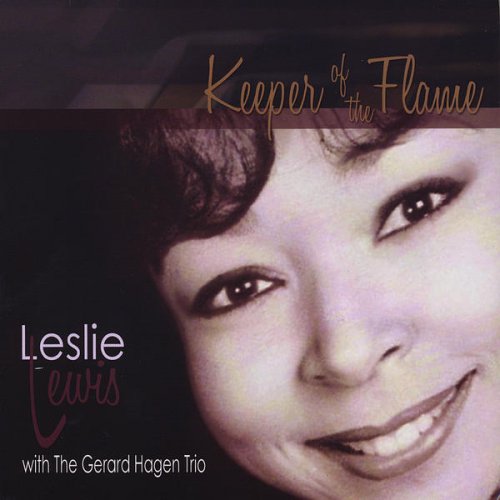
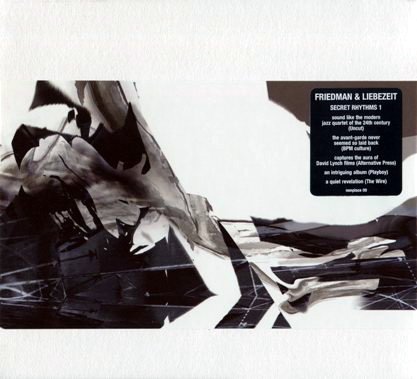
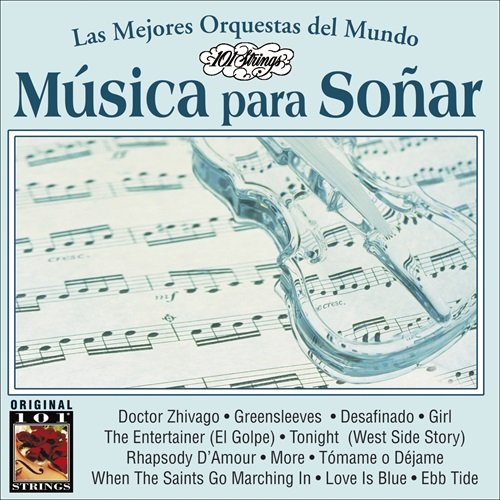
![Zoë de Priester - Can You Hear Me? (2026) [Hi-Res] Zoë de Priester - Can You Hear Me? (2026) [Hi-Res]](https://www.dibpic.com/uploads/posts/2026-02/1770745033_folder.jpg)
![Django Festival Allstars - Evolution (2026) [Hi-Res] Django Festival Allstars - Evolution (2026) [Hi-Res]](https://www.dibpic.com/uploads/posts/2026-02/1770746426_folder.jpg)
![Ravi Ramsahye PROTOTYPE - Sunglint (2026) [Hi-Res] Ravi Ramsahye PROTOTYPE - Sunglint (2026) [Hi-Res]](https://www.dibpic.com/uploads/posts/2026-02/1770729667_folder.jpg)
![Willis Jackson - Soul Grabber (1968) [Vinyl] Willis Jackson - Soul Grabber (1968) [Vinyl]](https://www.dibpic.com/uploads/posts/2026-02/1770670520_5.jpg)
